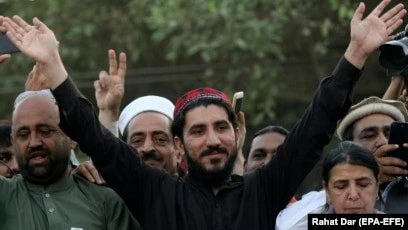Guarding Peace in a Shifting Power Play

US plans to transfer advanced military tech to India raise concerns over regional stability, arms imbalance, and selective diplomatic narratives
In a world increasingly shaped by power politics and strategic alliances, Pakistan finds itself voicing legitimate concerns over the potential ramifications of the United States’ decision to transfer advanced military technology to India. The announcement by President Donald Trump, which includes paving the way for the delivery of F-35 stealth fighter jets to New Delhi, represents more than a simple arms transaction. For Pakistan, this move reflects a worrying tilt in regional dynamics that threatens to erode strategic stability in South Asia.
Pakistan has rightly pointed out that such decisions, made without consulting or acknowledging the security needs and concerns of all stakeholders, risk pushing the region into deeper polarization. India has already purchased over $20 billion in US defense equipment since 2008. This latest step, aimed at increasing that number significantly, could spark a dangerous arms race in the region, one that benefits weapons manufacturers, perhaps, but imperils the delicate peace between two nuclear armed neighbors. When one country is consistently armed with the latest military hardware while the other is marginalized or portrayed unilaterally in joint political statements, the imbalance created is not only strategic but also symbolic.
Pakistan’s Ministry of Foreign Affairs expressed grave reservations, especially in response to the India-US joint statement, which made pointed references to Pakistan in the context of terrorism. These allegations, particularly concerning the Mumbai and Pathankot attacks, are not new, but their inclusion in a high-profile bilateral statement reflects a troubling disregard for Pakistan’s own sacrifices and contributions in the global war on terror. Over the past two decades, Pakistan has borne the brunt of terrorism, suffering over 80,000 casualties and economic losses exceeding $150 billion. The country has consistently cooperated with the international community, including the United States, in dismantling terrorist networks and bringing perpetrators to justice. To overlook this and instead recycle politicized accusations sends a disheartening message.
Furthermore, Islamabad has justifiably criticized the joint statement for ignoring India’s own track record. From the blatant suppression of human rights in Indian Illegally Occupied Jammu and Kashmir to its rising incidents of hate crimes against minorities, especially Muslims, India’s domestic conduct does not align with the democratic and peaceful image it attempts to project on the world stage. Yet, such critical issues were entirely absent from the joint declaration. This selective narrative, one that magnifies Pakistan’s faults while turning a blind eye to India’s failings, is not conducive to genuine peace or regional cooperation.
Equally concerning is the implication that Pakistan’s name is inserted into such declarations regardless of context. The Foreign Office spokesperson rightly labeled the reference as one sided, misleading, and against diplomatic norms. It is crucial to recognize that responsible diplomacy requires not just supporting allies but also acknowledging the complexity of regional conflicts and the perspectives of all involved. Pakistan’s exclusion from this conversation is not only unfair but detrimental to regional peace efforts.
The proposed transfer of F-35 jets, known for their stealth and strike capabilities, marks a significant leap in India’s defense posture. Such advancements, without a corresponding initiative to maintain regional balance, could embolden aggressive behavior and erode strategic restraint. It is not just about acquiring technology; it is about the signals such decisions send to neighboring countries. In Pakistan’s view, this deal sets a precedent where power outweighs principle, and geopolitical interests trump fair engagement.
Rather than further escalating tensions, the US should assume the role of a stabilizing force in South Asia. It has the opportunity and responsibility to promote dialogue, encourage disarmament, and support initiatives that foster mutual understanding. The path to lasting peace does not lie in arms deals but in diplomacy, inclusivity, and respect for international law and United Nations resolutions, especially those relating to long-standing disputes like Kashmir.
Pakistan has reiterated its commitment to contributing constructively to regional and global efforts to promote peace and stability. This includes continuing its fight against terrorism and striving for a future where South Asia is not divided by hostility but united by economic cooperation and mutual respect. For this vision to be realized, global powers must listen to Pakistan’s concerns not as obstacles but as integral components of a broader, more just peace.
Pakistan is not asking for favoritism, it is demanding fairness. And in a region where one misstep can have catastrophic consequences, fairness is not just a moral necessity; it is a strategic imperative. The world must recognize this before decisions taken in boardrooms translate into irreparable losses on the ground.











